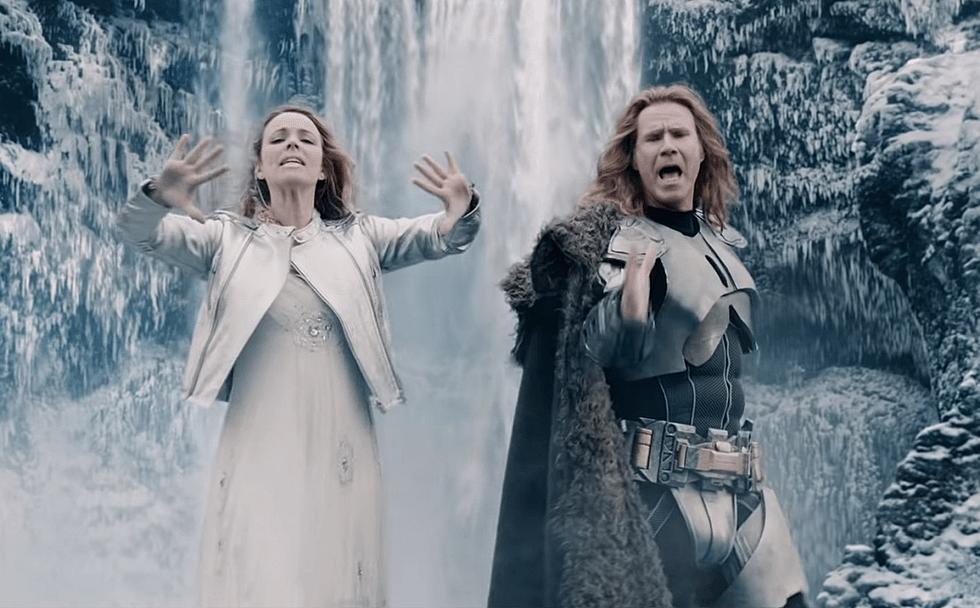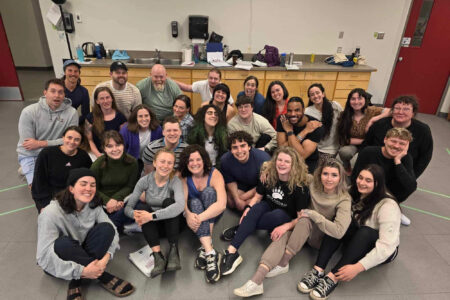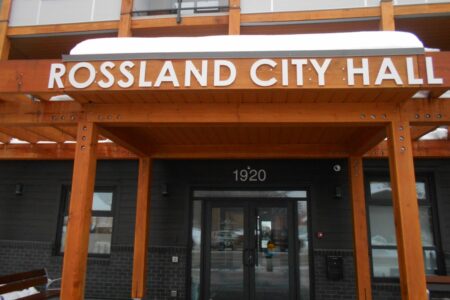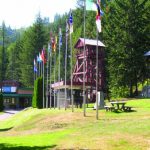Entertainment: This movie is just what we need now
By Anna Augusto Rodrigues, for The Conversation
If you missed the Netflix debut of Eurovision Song Contest: The Story of Fire Saga, there are reasons to watch it now that go beyond being inspired to keep up fashionable appearances through a winter in COVID-19 lockdown or dreaming about travelling to beautiful Icelandic landscapes.
The movie starring, co-written and produced by the hilarious Will Ferrell, is about the most popular song contest in the world that is watched across Europe and beyond. Although many in North America only learned recently of Eurovision, it has been an all-consuming obsession for many Europeans since 1956.
The film is a popular exploration of what I have examined as an education researcher: “pop-up pedagogy” — when a person doesn’t plan to take part in educational activities but ends up gaining knowledge unexpectedly anyway. This type of learning through popular art forms and media isn’t any less meaningful to people than what’s gained through formal education.
As I learned as a young person who immigrated to Portugal in my early youth, the televised song contest suggests the ways that sharing song and media in popular culture can be accessible ways of inviting people into new artistic, musical and cultural forms across borders and might even prompt changes in how we relate.
Origins of the contest
In 1956, the European Broadcasting Union, an alliance of public broadcasters from different countries, first ran Eurovision Song Contest as a way to promote co-operation among countries.
Since that time, 52 countries, not all from Europe, have entered original songs that end up being heard by millions of people around the world during the yearly live show.
Despite much of the media coverage of the contest falling on its over-the-top fashion, its unusual performances and stage props, Eurovision’s enthusiastic showcase of diversity is a great way to learn about cultural traditions and languages from different countries.
At Eurovision, every year, there are entries sung entirely or partially in languages other than English. Of course, a person isn’t going to learn a new language just by watching Eurovision (although they might be inspired to), but research shows that when a person is exposed to multiple languages they are able to learn a new one more easily.
Researchers have linked learning about diverse perspectives with improved critical thinking and creativity. More importantly, exposure to different cultures can lead to interacting with people from different backgrounds in more positive ways and increased openness to differences.
Language and community preservation
Some of the songs showcased through Eurovision have presented opportunities to learn about history and language preservation. For example, Breton, a Celtic language spoken in northwestern France, was heard at the 1996 Eurovision contest, when guitarist Dan Ar Braz of Brittany with L’Héritage du Celtes performed a song called Diwanit Bugale.
Breton is a language that has seen a decrease in speakers over the years. When Dan Ar Braz performed on a world stage, it was an opportunity for people to not only hear Breton but to learn about the struggle to keep the language alive.
More recently, Norway’s 2019 entry by the band KEiiNO showcased the Sámi language spoken by the Sámi, an Indigenous people of the northern part of the Scandinavian Peninsula and the Kola Peninsula in the far north west of Russia. KEiinO is a trio that includes Sámi rapper Fred Buljo. Their song also featured joik, a traditional form of Sámi music that is part of the traditional culture that earlier generations were prohibited from practising.
With an audience of 182 million tuning in in 2019, many people had an opportunity to learn about an Indigenous language through a song presented at Eurovision.
Bringing people together
about the political transformation that can happen through exposure to new cultural exchange; it’s rather about the small personal changes that can shift through being open to new dimensions of relationships and seeing ourselves in new ways.
But let’s not forget the movie also offers a kind of meta-commentary on the Donald Trump years in the United States.
This comes in hilarious doses such as when we see (the American) Ferrell in role as an Icelander screaming at American tourists: “Go home and build your wall!” Ferrell learned about Eurovision through his wife, Viveca Paulin, who is Swedish.
Traditional education has begun to recognize how learning opportunities provided by the Eurovision Song Contest are vast. The University of Melbourne has offered a course where students learn about the history of Europe through Eurovision and the University of Chicago has also offered a course on the famous song contest.
For those who prefer a more informal approach to learning, the Eurovision Song Contest returns in May 2021, but don’t worry if that’s too long to wait.
The movie is on Netflix along with all of its wackiness, like Ferrell running in a gigantic hamster wheel while singing Euro-pop in a flashy, silver outfit. Frankly, if you’re in Canada, facing three more months of dark, cold days along with COVID-19 restrictions, this sort of humour may be just what the doctor ordered.
Author Anna Augusto Rodrigues is a Faculty Development Officer, Teaching and Learning Centre, Ontario Tech University
























